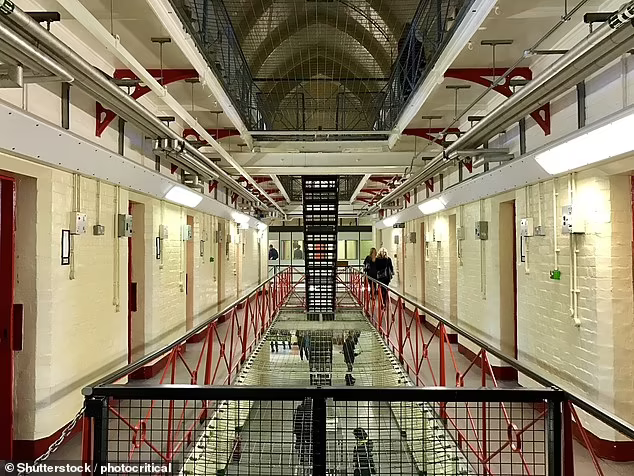BARONESS FOX: A mobile phone thief has spent 12 years in prison with no prospect of release - thanks to a Blair policy that's a stain on our justice system.
PUBLISHED: 18:02 EDT, 20 March 2024.
Thomas White was 28 years old when, in 2012, he was sent to prison for stealing a mobile phone.
It was not his first offence for theft, and few would disagree that a custodial sentence was perfectly justified, although there was no weaponry or violence used.
Twelve years on, however, the now 40-year-old father of one, from Bury in Greater Manchester, remains behind bars — with no prospect at all of release.
And so a man, who once stupidly grabbed a mobile phone from a passer-by while inebriated, has watched from his cell as rapists and violent offenders come and go — a baffling state of affairs that has seen White's mental health deteriorate to such an extent that he has developed schizophrenia.
The reason for this extraordinary injustice — and there is no other word for it — is that Thomas was sentenced under a rule known as IPP.
Baroness Claire Fox: 'Imprisonment for Public Protection was a regulation that came into force in 2005 under Tony Blair's tenure as prime minister in a bid to appear 'tough on crime'
This stands for Imprisonment for Public Protection, a regulation that came into force in 2005 under Tony Blair's tenure as prime minister in a bid to appear 'tough on crime', since his Labour government was often perceived as quite the opposite.
Sold to the public under the seductive banner of protecting public safety, these new indefinite sentences — from which release could be granted only by navigating stringent hurdles — were meant for criminals deemed by the courts to be dangerous.
On paper, at least.
In the event, they were often used far more widely than intended, for minor offenders who, as a result, found themselves facing lifelong imprisonment while serious and violent criminals walked free.
Eventually, there was a public outcry and, in 2012, the then Conservative government scrapped IPPs, rightly deeming that they were no longer fit to remain on the statute book.
So little has been said about them since then that the public could be forgiven for thinking that the issue was settled.
Alas, this is far from the truth. Because the abolition was not retrospective. Nearly 3,000 people are languishing in jail — potentially, indefinitely — among them is White, who was sentenced four months before the rules were scrapped.
That startling figure, incidentally, does not include the 86 IPP prisoners who have taken their own lives while incarcerated, with nine self-inflicted deaths in 2022 alone — the highest number in a single year since the law was first introduced.
Little wonder then that some of our finest legal minds have called it a 'lethal scandal' and a 'stain on our justice system'. DM.
Blogger: for the first time since beginning this Blog 16+ years ago - I am presenting a plea for mercy to people drastically over-sentenced!



